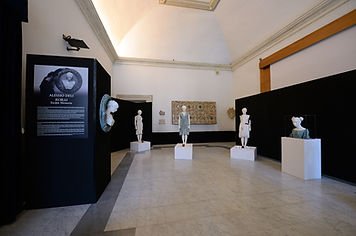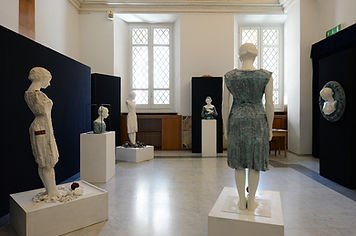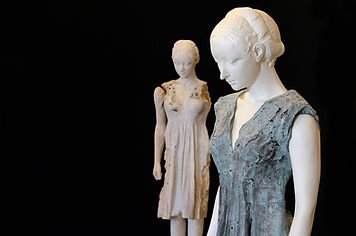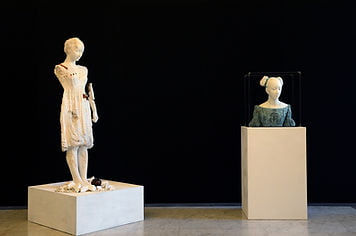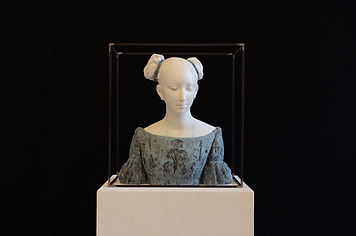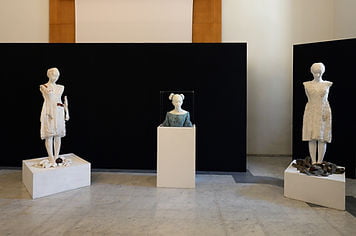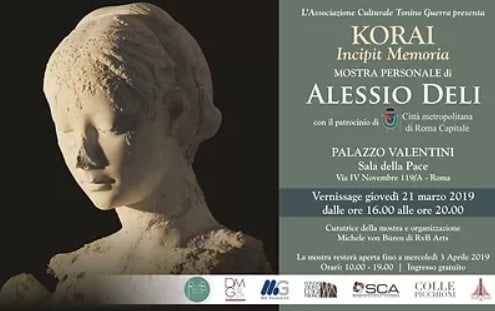
INFO
Vernissage | March 21st 2019 | 4PM – 8PM
Duration March 21st – April 3rd 2019
RvB ARTS, Via delle Zoccolette 28, Roma
Associazione Culturale Tonino Guerra presents
KORAI
incipit memoria
the personal exhibition of
ALESSIO DELI
under the patronage of Città metropolitana di Roma Capitale
PALAZZO VALENTINI, Sala della Pace, Via IV Novembre 119/A, Rome
Exhibition catalogue by Tored srl
Contributor: Carmelo Occhipinti.
Forewords: Michele von Büren and Renato Mammucari
Exhibit Curator and Organizer:
Michele von Büren | gallerist of RvB Arts, Rome
Press Office: Caterina Falomo | [email protected]
info +39 335 1633518 | [email protected] | [email protected]
And the kind sponsorship of:
Colle Picchioni
DMG & Partners
Edizioni Tored
Fondazione Luigi Tronci
MG Research
RvB Arts
SCA (Société de Conception Acoustique)
KORAI Incipit Memoria
The exhibition KORAI Incipit Memoria, shown at Rome’s prestigious Palazzo Valentini, presents to the public for the first time a new series of works by Alessio Deli which includes four sculptures of standing girls, a tondo and two half busts.
Deli’s entire artistic production combines the recovery of historical memory with the use of recycled materials normally considered of little value. These two strands affect his art in a complementary way, but according to percentages and compositions that are different each and every time.
In his most recent works, such as the Korai, Deli limits the use of poor materials, such as coated lead, to create the garments. He prefers instead to employ resin and gypsum to shape the bodies. Therefore the attention is focused above all on the evocative component of the form: the smooth face, which refers to the Renaissance aesthetic of Francesco Laurana at the Bode Museum, contrasts with the fragmentation of the figure, evident above all in the limbs.
In the tension between these two poles, a dynamic relationship develops between the contemporary and the return to classical – if not archaic – statuary. It’s a journey back in time, which starts from the present and has its roots in the archetypes of tradition, going from the Italian post-war artists, such as Arturo Martini and Marino Marini, to exponents of the Renaissance such as Luca della Robbia. In this process, Deli also retrieves other artforms, often considered minor, like devotional art, where the artist’s manual ability plays a fundamental role. From this comparison, a certain idea of cultural identity strongly emerges, all centered on the continuity and permanence of memory, which literally shapes the contemporary figure, despite the corrosive action of time on all human material.
Previously, Deli investigated the temporal dimension of art through the expressive potential of reusing found objects. In restoring artistic dignity to discarded artifacts, he strengthened and updated his figurative language. The recovery of poor materials in order to create new artworks allowed him to achieve two objectives: on the one hand, he managed to compile a sort of archive of reality through what consumerism had rejected, and at the same time he rescued these objects from oblivion, and reinstated them in the flow of human time.
The natural consequence of this process resulted in a profound analysis of humankind’s relationship with time, in its personal and collective dimension (memory and history), and led to the primordial essence – at the beginning, at the incipit – of the artwork itself. Deli therefore seems to suggest that every contemporary artist who truly belongs to their time is, in reality, ancient, because they are the result of the previous accumulation and stratification. From researching and accepting this component of the past in his present, Deli’s Korai are born.
Luisa Grigoletto

